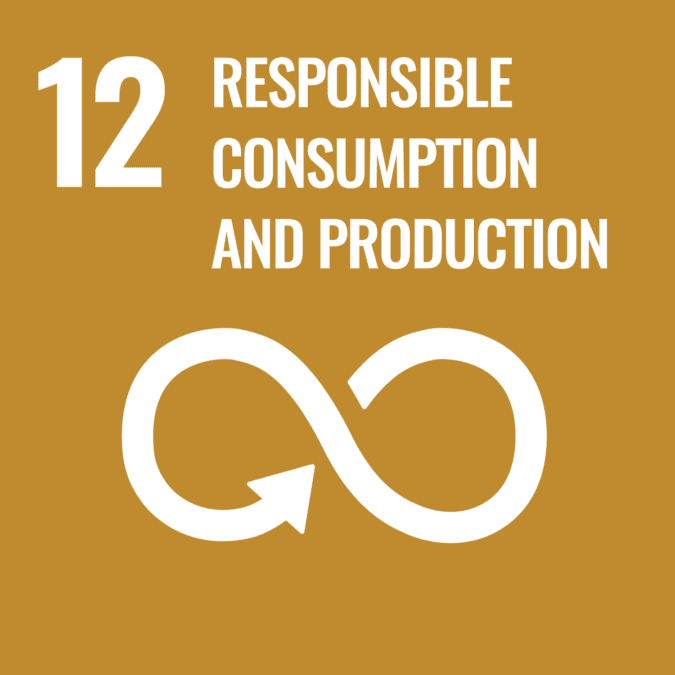Anna Young-Ferris

SDGs by 2030 – are we on track?
It’s in the books: accounting for sustainability
In the business of sustainability a central axiom is ‘what is measured will be managed’.
That’s also the intent behind SDG Target 12.6, in which companies are encouraged to adopt sustainable practices and to integrate sustainability information into their reporting cycle.
If a company is not properly tracking its social and ecological impact then it does not understand all of its business liabilities and responsibilities. It also means the organisation may not be aware of emerging risks and potential opportunities.
Around the world companies are updating their reporting practices. More than 95 percent of the world’s largest companies report on their sustainability, or ESG (Environmental, Social and Governance), matters.
Today’s investors want more than just financial information. They want to compare various companies across different sectors, considering a broader spectrum of risks and opportunities.
So what exactly is being measured and reported in sustainability/ESG reports? Data on greenhouse gas emissions, including Scope 3 emissions; energy use, biodiversity and nature protection, human rights, diversity, equity and inclusion, occupational health, safety and wellbeing, supply chain, data security and privacy matters and a whole lot more.
What to include is further complicated by the plethora of sustainable reporting frameworks – more than 600 at last count. And, unlike financial accounting requirements, sustainability reporting has until recent times been mostly voluntary in nature.
Financial accounting standards are the backbone of the financial capital markets and of Western capitalism. ESG reporting maybe flourishing but ‘standardised’ it has not been.
Enter the International Sustainability Standards Board (ISSB). Established in 2021 this new standard setting body has released the first two baseline reporting standards for general sustainability and climate-related financial matters intended to bring the rigour applied to financial reporting to sustainability reporting.
The first, IFRS S1, sets out general requirements for disclosure of sustainability related financial information – that’s your broad ESG reporting. IFRS S2 is for climate related financial disclosures. These standards will become the vehicles for companies to incorporate this information into their financial reporting cycle.
The next step is to make these reporting protocols compulsory. Currently the Australian Accounting Standards Board has sought to merge the two IFRS’ compulsory reporting standards into an AASB Sustainability Reporting Exposure Draft ED SR1 with an emphasis on disclosure of climate-related financial information. The first tranche of reporting entities are required to report in FY25.
But wait, there’s more. Target 12.6 goes further, calling on companies to ‘adopt sustainable practices’. ‘Materiality’ is a crucial concept in finance, referring to the information companies must provide to investors. Recently a new concept has been gaining traction: double materiality which requires companies to not only report on how ESG issues financially impact the company (i.e. outside-in or financial materiality) but also how the company will have a material impact on society/people and/or nature/planet (i.e. inside-out or impact materiality). Double materiality has been mandated as part of the European Sustainability Reporting Standards and for three major stock exchanges in China.
A double materiality approach offers investors a more complete picture of potential risks. Mining companies (for example) may be required to report on both the material financial impacts and the material societal impacts of a potential tailing dam collapse.
Double materiality also encompasses positive impacts. It can also include emerging opportunities, such as new technology that could reduce a company’s emissions profile with flow on societal benefit as well.
Making double materiality reporting mandatory is welcome and sensible. Business need a standard set of guidelines to help navigate the complexity of sustainability and to better understand the ways their sustainability actions can have a positive impact, taking all of us closer to achieving the SDGs.
Sustainable Development Goal (SDG) target addressed:
Target 12.6 Encourage companies, especially large and transnational companies, to adopt sustainable practices and to integrate sustainability information into their reporting cycle
Dr Anna Young-Ferris is a Senior Lecturer of Accounting, Governance and Regulation at the University of Sydney Business School at the University of Sydney Business School. One of her scholarly research interests lies in transforming the business education narrative from one of Shareholder Primacy to a more Responsible Business Mindset.
Share
We believe in open and honest access to knowledge. We use a Creative Commons Attribution NoDerivatives licence for our articles and podcasts, so you can republish them for free, online or in print.




